[00:00:00] Leah: Welcome to this episode, episode number 37 of the Balancing Busy Podcasts. How to become a great decision maker. Becoming a better decision maker can change your life. Truly, your entire life can improve when you become more confident as a decision maker. When faced with a choice, we use a combination of past experiences, general perspective, and current mood and that current mood part.
[00:01:02] Uh, we’ve all done it One Friday night, you are ready to go out at hit the town The next Friday night, you’re like, I wanna be in bed by seven. Is that acceptable? So it depends on our mood. We’ve also all made the wrong choice under. Better choices under rest and decisions that we wish we could take back because we just weren’t feeling it or felt stuck completely in knowing what decision to even make to begin with.
[00:01:31] One of the things that makes me really sad is when I see people who. are indecisive. They’re stuck in indecision. They’re making no decisions at all because they don’t know what to do until the door is closed for them. The decision actually gets made for them because they took so long in deciding and they lose opportunities.
[00:01:53] I hate seeing that, but I get it because decision fatigue is a real thing. I mean, I’ve done it. We have to make a lot of decisions every day, and it can get exhausting. The research doesn’t even agree. Some researchers say we make somewhere around maybe 150 decisions a day. Others say we make 35,000 a day, so we can’t even agree on how many decisions we make a day.
[00:02:21] But there are a ton of them. There are so many decisions from the littlest things, just this or that to big. So how do we become good at decision making? And I’m going to use my personal experiences for this episode. .
[00:02:38] I’m also going to use ideas from Gard Guer, I think that’s how you pronounce his name, but he’s the director at the Max Plain Institute in Berlin, as well as other ideas that I’ve picked up from Boyd, Kay Packer and other people just along the way. So, Let’s start with the oldest idea that gets presented for decision making, the pros and cons list.
[00:03:00] Has anyone made that middle school list of pros and cons for who you had a crush on? Anybody else make that? I totally did, but the honest truth is, Often the pros and cons list doesn’t really service that well. It’s not that helpful, and most of us aren’t sitting down multiple times a day making pros and cons lists of, of what to do in any given situation.
[00:03:23] So academia, they call this this strategy. , the Benjamin Franklin Bookkeeping Method or Expected Utility Theory. These ideas come down to risk versus reward. Sometimes it works because you really can calculate, but most of the time it, it doesn’t.
[00:03:44] What we need is smart and simple strategies or rules of thumb that we can use, that we can pull out from our back pocket. In making decisions from the littlest decisions up to the biggest decisions of our lives. And I started with these huge, giant lists. I mean, I had so many bullets, so many lists of them.
[00:04:04] But ultimately, as I wrote and rewrote and kept trying to come up with and define and decide like, what is the most help for us? What do we really use? What do I really use? What? What does everything say? I came down to four, four Rules to live by when it comes to decision making, and they are rule. Look for the simple rule two, don’t assume Rule three, follow your gut.
[00:04:27] And rule four, decide with an eternal perspective in mind, and I will explain what that means. . In this episode, we’re talking about what actually helps us make good decisions and what really works. what is going to help you. It’s what’s going to help me.
[00:04:44] It’s how we become a smart and effective decision maker. So let’s jump in. Rule one, look for the simple. When we break it down, the real fear is making a mistake. We worry that we’ll regret the decision we made, and that brings with it. One of the things that we need to realize is so many of the decisions we’re.
[00:05:06] they’re not permanent. We can go back, we can change our mind. And even just having that little piece of mindset on our side saying this is not forever. There are very few things are forever. We’ll, I’m gonna go into that further, but I just wanna start by saying that if the fear is that we’re gonna make a mistake, we need to start by questioning that and saying, well, is it, is it permanent?
[00:05:30] Can I not go? . So the very first question is, is this reversible? And can I be honest? There are very, very few decisions that I believe are actually not reversible. Very, very few. When I’m thinking about it, I’m like, okay, my husband is not reversible. Um, I know someone disagree, but for me, not revers. The decision of like, do I have another child?
[00:05:55] Okay, that one’s not reversible. But I’m gonna say I cannot imagine that there is anyone on the planet who’s like, really wish I wouldn’t have had that last one. Right? Like, you’re never gonna regret that decision. And pretty much the rest of it is reversible. I mean, career choices, um, where we live choices like.
[00:06:17] We can change these, we can change our mind. I’ve done it a lot of times. It really is. Okay. So basically it’s just this quick assessment of what kind of choices in front of me. Not all decisions are created equal. The trick is to make simple decisions quickly and big decisions slowly. Decision fatigue is real.
[00:06:38] . That means we wanna simplify where we can. We have to make so many decisions every day, but are there areas of your life where you can make the decision once and then just run with it? Some really simple examples of this are things like Taco Tuesday or Friday pizza Night, or Pot Roast Sunday.
[00:06:57] When you just know that every Friday is pizza night, then you get to avoid thinking, oh, what’s for dinner? And having to answer that question on Fridays, every single Friday, that question becomes answered for you. There’s no longer a, I have to make multiple decisions in first. What’s for dinner? Then what do I have on hand then?
[00:07:18] Is it frozen? Then, oh, I’ll pick up a pizza. Then what kind of pizza? No, you literally just have it’s pizza night. Now the only decision is what kind of pizza do I want? Or think about the tech billionaires who wear the exact same jeans and t-shirt every single day. You’ve seen it, you know the closet where it’s.
[00:07:36] 500 white t-shirts and the exact same Levi Jean, and they literally just grab those every single day. They do this because they don’t want to waste energy on making those decisions. They don’t value that as a priority for decisions, and so they keep it really simple. And I honestly do this to an extent, like to simplify my life, I pretty much go.
[00:08:00] These phases of like a uniform. My most common is jeans, t-shirt, sweater over it like that is, is my most common, or I do it with my exercise routines. I really like picking a routine or a, a method or a system that I am going to do for 60, 90 days. Why? Because that means for whatever the duration of that program, I do not have to figure out what I’m going to do now instead of having to.
[00:08:28] Should I work out? Yes. What am I gonna do? Do I go to the gym? Do I do something at home? Do I get on the elliptical? Do I get on the treadmill? Uh, like I cut out a bunch of those decisions by just being like, I work out, here’s the workout. It’s day 37, press play. And I just go, it’s just a way to simplify the decision making process or it’s knowing that every time that I go get my nails, We will be having tacos for dinner because it just so happens that my favorite taco place is right next to where I get my nails done.
[00:08:59] So that is an easy decision. Nails done equals tacos for dinner. It’s knowing that Monday is project day, that Thursdays are client days. It’s setting up systems so that we can slow down decision fatigue. There is this legend. It’s pretty much proven to not have been true, but during the height of the space race in the 1960s, legend has it that NASA scientists realize that pens could not function in space.
[00:09:34] So they’re like, okay, well we gotta solve this. We need something for the astronauts to be able to write. So they get to work on solving the problem, spending millions of taxpayer dollars and lots of time trying to develop a pen that could put ink to paper without gravity. In the end, the story goes that someone finally realizes that all that was needed the entire time was a pencil.
[00:10:01] Are we over complicating something that really might only take NASA’s equivalent to a pencil? Look for the simple. That brings us to rule two. Don’t. when making decisions. We don’t want to make assumptions. We need to ask questions. In the words of Matt confer, challenge the constraints. Is there a better solution, a simpler solution?
[00:10:35] Do you even need a solution at all? \
[00:10:38] We have to check our confidence level and make sure that we’re not making assumptions either because we’re overconfident or we’re underconfident. I actually generally believe that. I think a lot of times we’re underconfident in what’s possible, in what we’re capable of, in what’s available to us, but for the sake of this, I am going to use an example for you of being overconfident.
[00:11:00] So when I was almost 16, my dad took me to look at a car that he was considering buying me. It was a cute enough car, but. It wasn’t what I really wanted, which was a white Jeep Wrangler, because yes, clueless had come out when I was 13 years old and I had my little heart set on Cher’s White Jeep ever since.
[00:11:21] And I had talked with my dad about this many times from age 13 to now, almost 16, and I’d even gotten him a couple times. Go along with my scheme that I needed to be driving an adorable white Jeep Wrangler. So I turned down this little teal car telling my dad that I hated the color teal and therefore I could not drive that car.
[00:11:44] I know, I know, I know, I know. But just I’m sharing this for the sake of the lesson. Well, one day I come home and I find the ugliest car I had ever. in our driveway and my heart just drops. I’m like, please tell me that car does not belong to us. Someone’s gotta be here. I don’t know who could be here. I don’t know why anyone would be here, but please tell me that this is not what I think it is.
[00:12:09] Well, it was my dad quote surprised me with this car. What I really think happened is he realized that the best way to not have to deal with my overconfident teenage zeal for a very expensive, brand new Jeep Wrangler. And with that deal with me turning down every other reasonable good car was to make the decision for me.
[00:12:37] I was too confident that I could get him to buy me a brand new white Jeep Wrangler. And guess what? It turns out that that confidence was misplaced. I was wrong, and I spent the next year’s driving my 1984 Pontiac Sunbird. You don’t know what that is? Probably because, well, they couldn’t have made many because it was hideous.
[00:13:01] But I spent the next several years regretting the decision to turn down the almost new sporty little Teal Ford probe that I had rejected because I was overconfident.
[00:13:14] On the flip side, there are plenty of times when I see people so under confident in what’s possible or even their own abilities that they reject a really great opportunity. So we just need to check in with ourselves. Am I being under or overconfident? What assumptions am I making? And we need to make sure.
[00:13:34] We aren’t going in making assumptions that are just completely wrong. So you ask yourself, what information could I be missing? What blind spots might I have? Okay, that brings me into rule three, follow your gut. So scientific research actually found that going with your gut is ideal for decision making.
[00:13:56] According to experts, the more you pay attention, the outcome of trusting your intuition. In combination with facts, the better your future decision making can become. Now for me, when I say trust your gut, I mean that I’m trusting my intuition or even better promptings that I believe I’m receiving, or in other words, heavenly help, heavenly guidance when making big decisions that heavenly.
[00:14:25] becomes everything for me, like truly everything for me. That is how I make the big decisions, and it’s why the pros and cons list doesn’t work because there are times when we have made decisions in our lives that according to any pros and cons list do not make sense. It does not measure up, and yet it was the best thing we could have done for our family, and it was following that intuition, those prompt.
[00:14:53] I’ve long followed the council from Boyd Kay Packer, who said, when you have a problem, work it out in your own mind. First ponder on it and analyze it and meditate on it. So I do that, and then from there I personally pray about it. I try to get very clear on what my plan is, and I bring that in my prayer to God and I say, this is what I’m planning to do.
[00:15:16] Is it right? And then I. See how I feel, and I’m looking to see, do I feel warm, do I feel good? Do I feel excited? Kind of like a little bubbly, like giddiness? Or do I feel unsure? Do I feel uneasy? Do I feel just uncertain and unclear? And, and if I do, if I feel that uncertainty that that lack of clarity, it doesn’t feel good.
[00:15:39] Sometimes it’s easier to just trust in my body, right? Like, ooh, I feel yucky, or I feel good. And if I feel that yucky, then I go back and I ponder and I analyze some. Boyd Kay Packer had continued with the wise conclusion. I’ve come to learn that major decisions can’t be forced. When I’m making small decisions, I try to act quickly and decisively.
[00:16:00] I understand that the more that I practice with those small decisions, the more confident I become with the big ones. But when the big ones do come up, I do not just trust in myself alone. I don’t rely on pros and. I’ve learned that when I’m trying to make those big decisions, forcing things is almost always an indication that it is not right.
[00:16:26] And that brings me to our final rule. Decide with an eternal perspective in mind. This comes down to knowing your core values and. This is the tip that honestly, if you only took one thing away from this episode, this is the thing that I believe can make the biggest impact, like rule number four. This is the one think big picture when you’re making decisions.
[00:16:53] I call this eternal perspective, and this comes down to little decisions or big decisions, which I love. Like I’m all for a tip that can help me across the board. And this is the one
[00:17:03] because think about it, the kids wanna play with me, or the signup goes around for volunteers needed. Or maybe we can bring this to the table and say it’s about the food that I’m choosing to eat, or if I’m gonna get my rings closed or not Today, in each of. When I make the decision from an eternal perspective, I stop thinking about what I want right now and I start thinking about what Future me wants.
[00:17:30] Future me hopes that I say yes to playing with the kids, cuz future me understands that this isn’t forever. Now I can’t always, of course we all know that, but so many. We might be too quick to make the decision for a no. When future You is begging that you say Yes, future me knows that in order to have a strong community, I need to be one of those people who says yes to the signup sheet for volunteers.
[00:17:57] No, not all the time, but when I can. And that doesn’t mean only because it’s super, super easy and convenient. Nobody is excited to, you know, volunteer to clean the thing or whatever it might be. We’re all busy. We all feel like we’re lacking in time, but that’s how we make great neighborhoods. Great communities, great schools, great lives.
[00:18:21] Future me wants me to be vibrant and hopes that at least most of the time, I choose the fruit over the or. Future me has really big plans with my grandkids, which I totally don’t have yet, but I will someday and hopes that I close those rings so that I can stay strong and active. I really want them, I have this like vision of them having to keep up with me, not me trying to keep up with them.
[00:18:51] And so future me hopes that I do the work to stay strong so that I can. When I can make choices with my core values, with my eternal perspective in mind, I’m going to make better decisions from the littlest ones all the way up to the biggest ones. Finally. stay in gratitude. We make better decisions when we feel good.
[00:19:16] Bottom line, we all know it. When we’re stressed, overtired overspent our decision making skills go down. We’ve all lost our temper or done something that we’re like, oh, because we were just worn too thin. So when we can stay in us. Space of gratitude. When we can take care of ourselves better, we’re going to make better decisions.
[00:19:36] It’s really that simple. So whenever possible, don’t make big decisions stressed. It’s not always possible, but if it is, consider that you know that saying that like the journey of a thousand miles begins with one step. . Well, if we’re going to become incredible decision makers, we start with the next decision presented in front of us and we just go from there.
[00:20:01] So to recap all of this, the rules for better decision making are rule one. Look for simple rule two. Don’t assume rule three, follow your gut or your intuition, or that prompting and rule. Decide with an eternal perspective in mind. This is based off of your core values, what future you really wants for your life.
[00:20:25] I’m gonna give you two very silly, one silly one, not silly examples of actually using these in my real life. Number one last week. , we were getting Mexican for takeout. Okay? And we were ordering Mexican, and I could not decide between the chicken mole and this other thing. I’m not gonna tell you what it’s called because honestly I can’t pronounce it, but essentially it’s like, uh, mushrooms and prawns and steak and garlic and butter and oh my gosh, I love it.
[00:20:51] Has this moho sauce on it is so good. I couldn’t decide which one I wanted. Look for the simple. Do you know what the simplest way to decide? Just order both of them. Now. The next is what assumptions was I making? The assumption I was making was that is totally unacceptable. You cannot order two dinners.
[00:21:07] But then I realized, yes I can because I could eat the other one for lunch mix can makes the best leftovers ever. And I realized, oh my gosh, that would be so incredible for lunch tomorrow. Now, as far as following my gut, I mean, I guess my tummy was really happy deciding with an eternal perspective. Mm.
[00:21:27] Not really useful probably cuz this was a really simple decision. But I just, it was a small decision that I made simple by just ordering both because I’m the grownup and I can, and that just simplified. It didn’t have to be a thing. Now let’s go to a much bigger decision, which is choosing where you’re going to live and this one.
[00:21:47] this one. It’s, it’s big. I get that. And we have moved a lot of times in our 20 plus years of being married a lot of times, so I have made this decision many, many, many times, and I’m going to share one of those moves where if I had gone off of a pros and cons list, we never would’ve done what we did. And that was, oh my gosh, there’s so many of them.
[00:22:11] I’m honestly, I’m like, well, maybe I should share this one instead. . I had the dream to buy a Christmas tree farm. I dreamed of this for a couple of years. I really wanted it. I would tell my husband all the time and tell friends and, and guess what? I got to buy that farm. In fact, I bought it myself through my, me and my business that I had started.
[00:22:35] It is, and was one of the most incredible things outside. motherhood and, and, and my, my eternal perspective, things that I’ve ever done. I bought a Christmas tree farm and I thought we were gonna live there forever. Forever. In fact, we had found the plans for the house we were gonna build. We were, we were putting down roots.
[00:22:59] We were gonna live there forever. And then I had this feeling that we needed to go home. We lived about two and a half hours away. Home where we both grown up, where our family was, and I needed to go home. My sister was starting to have babies, she was starting her family, and I wanted to be there. I am her person and I wanted to be there for her.
[00:23:23] And if you made a pros and cons list, it didn’t make sense. But following that intuition that. , I knew this is what we were supposed to do. And so my husband and I, we prayed about it. We, we discussed, we pondered, we did all the things and we were like, okay, we’re gonna do this. And it was such a good decision.
[00:23:45] I mean, it was, it is what we were supposed to do, even though no pros or cons list would’ve ever seen that. But we decided it with an eternal perspective in mind. And I could go on and on with more decisions we’ve made like that. But the bottom line, This combination of these rules one through four, looking for simple checking for assumptions, following your intuition and deciding with an eternal perspective in mind.
[00:24:12] Using a combination of these, whether it’s deciding what you’re ordering for takeout, or choosing where you’re going to live and if you’re gonna uproot your family. I believe these can help us. Roy, Disney. When your values are clear to you, making decisions becomes easier. Here’s the bottom line. We make hundreds, maybe thousands.
[00:24:35] They can’t agree on how many, but we make a lot of them every single day. But the bottom line is in all those decisions that we make, ultimately those decisions make us. That’s why the most important rule that I can live by and encourage you to live by is making decisions with an eternal perspective. I hope you will give these a try.
[00:24:59] Just start with the very next decision that shows up for you today and start using these. Maybe put ’em on a little Post-it note and stick ’em where you can see ’em. Am I looking for the simple, am I making assumptions? Am I following my intuition? Can I make this decision with an eternal perspective? Go give it a try and just make that next right step.
[00:25:18] Take the next right step, the next right step, the next right step next. , use these and practice and see your decision making skills improve. Okay, that’s it for this episode. Thank you so much for making the decision to listen to the Balancing Busy podcast. I am so, so grateful. You know what I would love for you to make the decision to do right now to go leave a review, go leave a five star review.
[00:25:43] If you’re on Apple or Audible, you can leave a couple sentences as well. Everywhere else, just leave the stars. That would be so incredible. And that would be such a gift for me. Okay. Thank you again. I hope you enjoyed this episode. I’d love to hear your thoughts, so shoot me a dm, send me an email, whatever.
[00:26:00] But I would love to hear from you and your thoughts about this and hear your results in trying these four steps. I can’t wait to hear. Thank you again, and I’ll see you on the next episode.
Hide Transcript
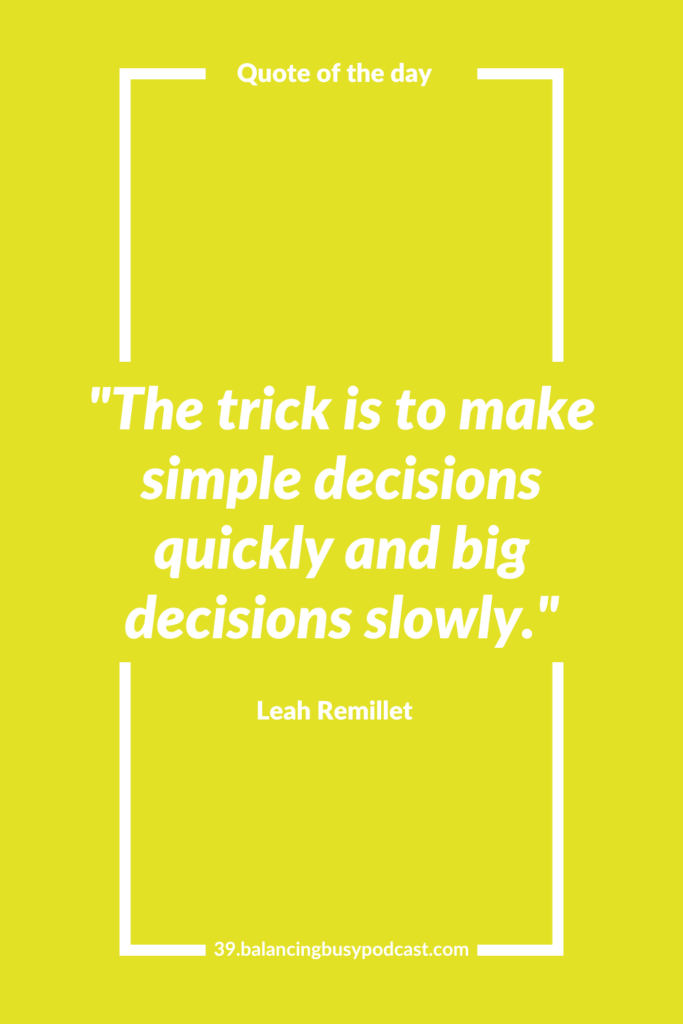
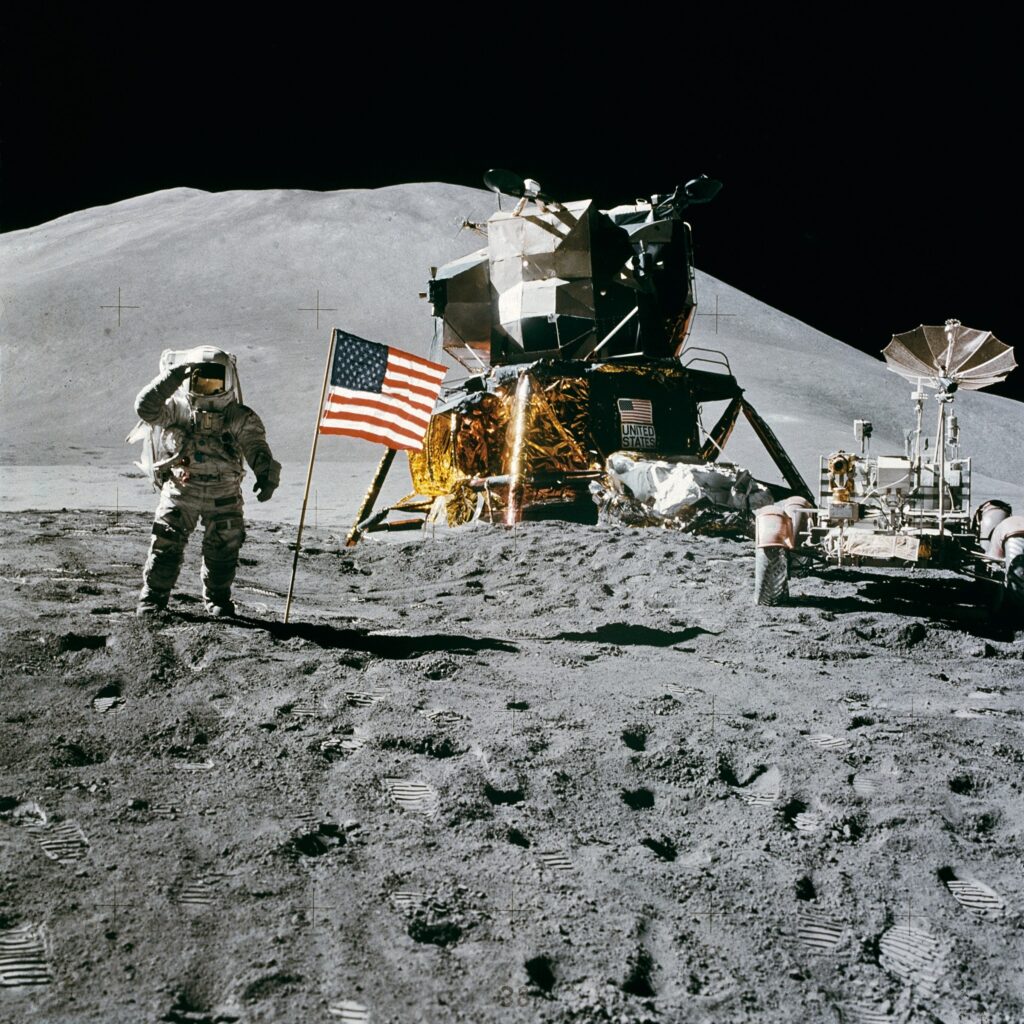
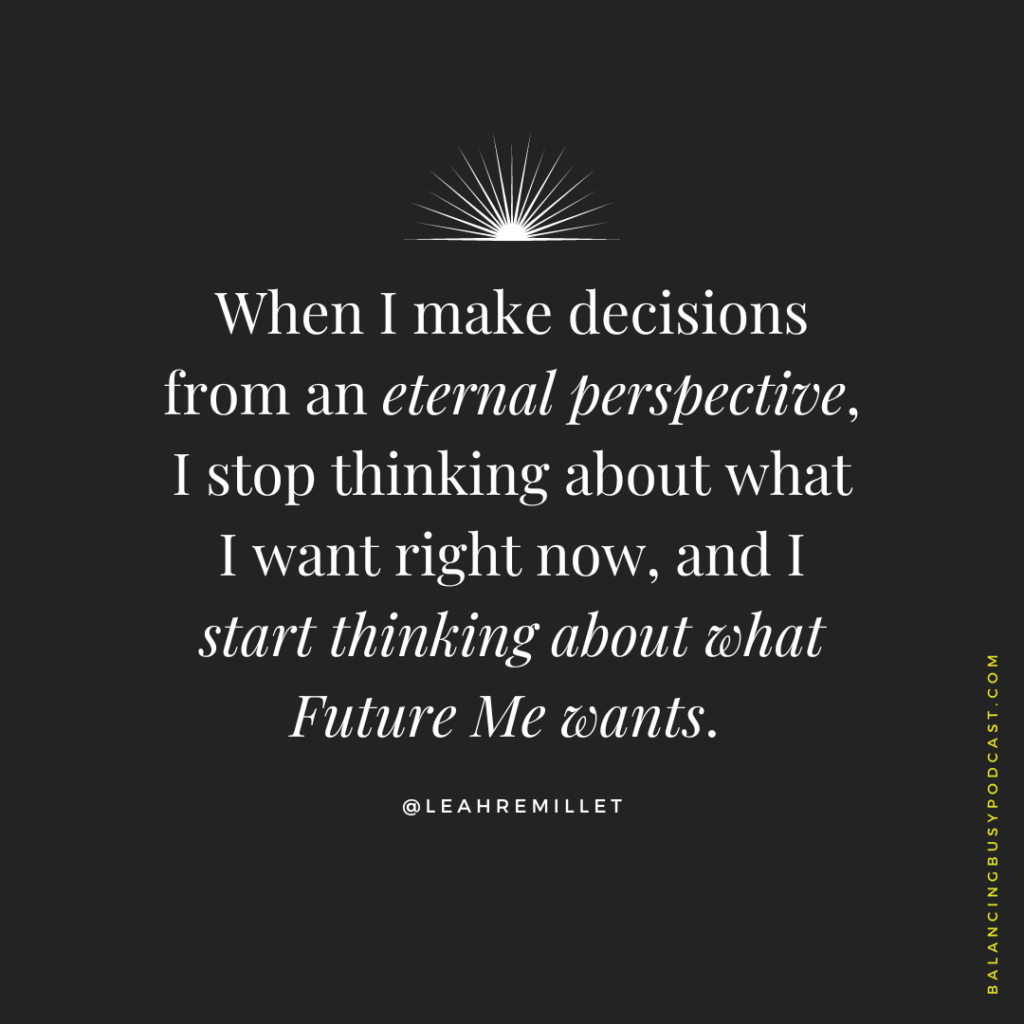
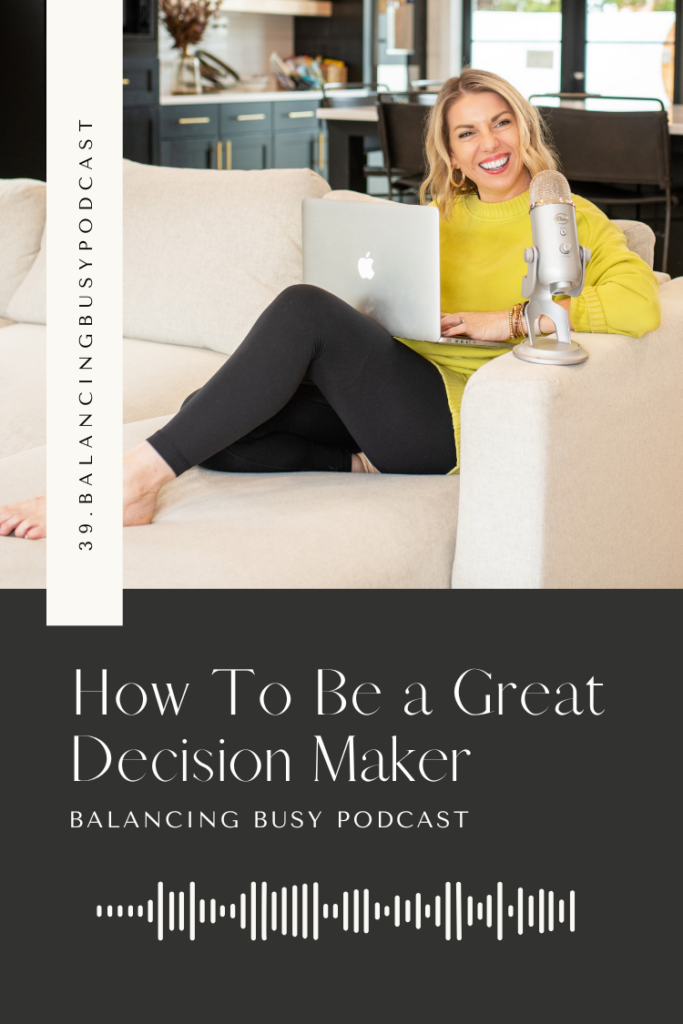
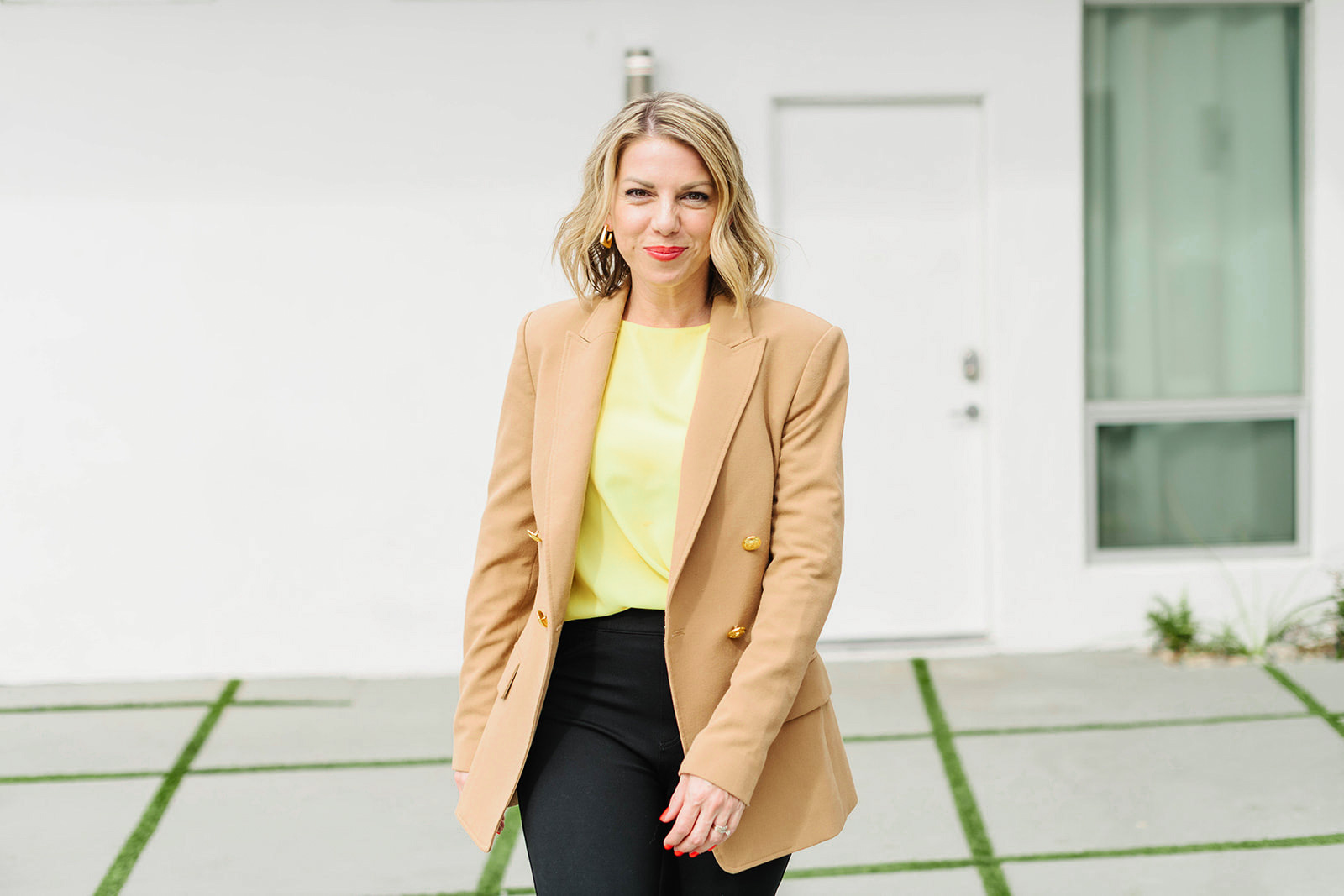
you said: